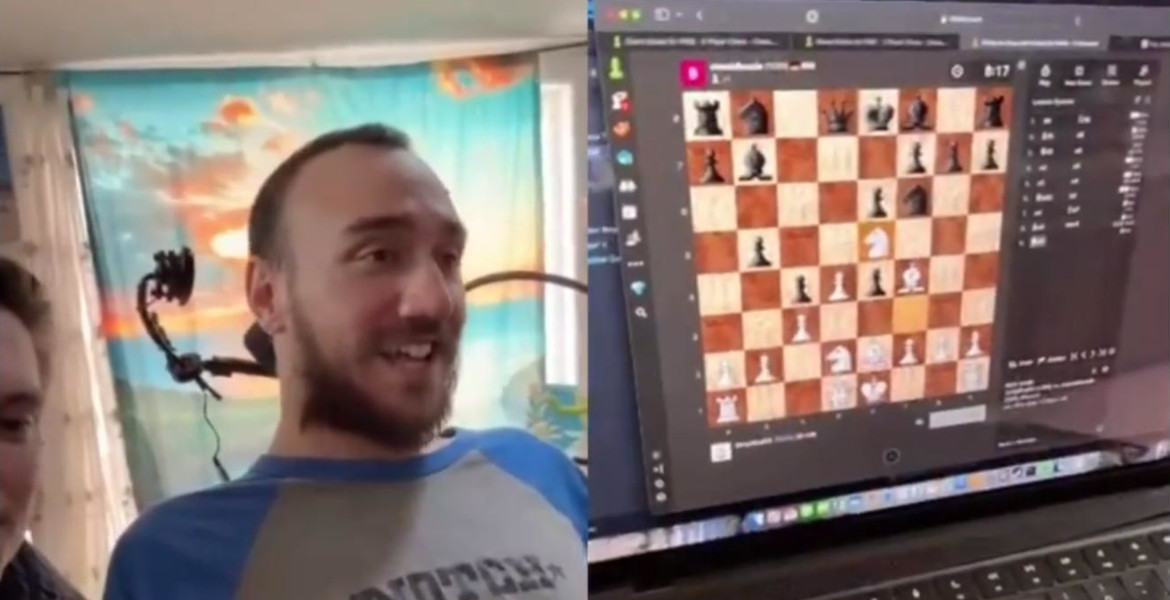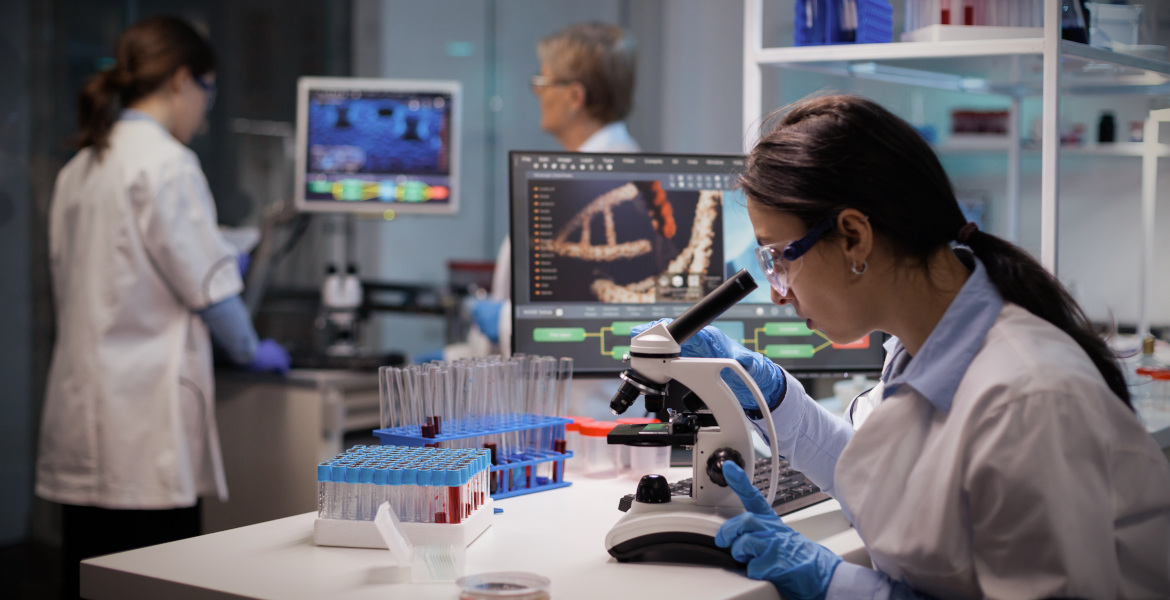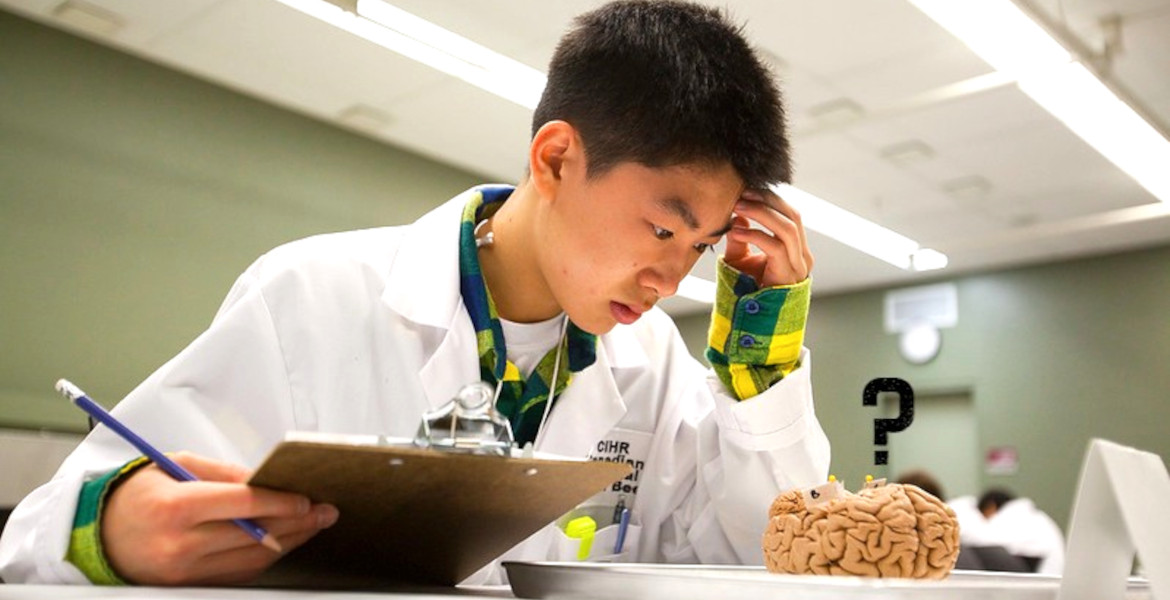Brain research has been conducted for decades, accumulating extensive knowledge about the brain’s functions and reactions, both electrochemical and biochemical. Today, the structure and composition of a brain cell can be described in great detail, and its function has been clarified. The brain has been established as the central organ of the nervous system, transmitting impulses enabling, among other things, motor functions. Humanity has thus gained a wealth of knowledge about the brain, as well as other physical organs, which is beneficial in cases of dysfunction, injury, treatment and surgery.
What has not been mapped, proven or explained, however, is human beings and human consciousness. Nevertheless, science, and implicitly large parts of brain researchers, stubbornly maintain that the human being is the brain and that the brain controls the entire human consciousness, i.e. everything that the human being thinks, feels, says, remembers, can and does. The brain is thus not only given the function of being the overall part of the nervous system, but is attributed the overall, or leading, position over the human being itself. How such reasoning has been allowed to pass as scientific fact, and is also widely accepted as truth within mainstream natural science, may seem absurd to an independently thinking individual.
What has not been mapped, proven or explained, however, is human beings and human consciousness.
If brain research, and thus physical science, cannot scientifically prove how the brain produces everything that a human being thinks, feels, and remembers, then how can it so confidently claim that it does? Moreover, how can such claims serve as the foundation for public discourse about the brain? Across websites, television programs, and institutions in healthcare and education, we are constantly presented with this “knowledge” about the brain’s supposed influence over us. However, none of the claims regarding the brain’s role in producing human consciousness and memory have been scientifically verified.
Not only are these explanations often contradictory (they depict the brain and the human self as separate entities), but they also defy reason by reducing the human being, this living entity with dreams, desires, willpower, reflection, intelligence, and agency, to a passive slave under the control of a wrinkled mass of organic matter and its electrochemical signals.
Here some quotes with following comments, to illustrate the contradictory arguments and how you as a human being are presented, taken from, among others, a national and well-known healthcare site on the internet:
“The outer layer of the cerebrum is called the cerebral cortex. It consists of gray matter that contains nerve cells. The cerebral cortex is responsible for our awareness of different sensory impressions. The cortex is where our thoughts, feelings and memories are created”.
“The brain is involved in almost everything we do, feel, and experience. It gives us our personality and emotions. The brain is what allows us to have consciousness, to think, and to remember”.
“The brain uses very few neurons to remember things it sees”.
“Research claims that neurons act as thought cells, capable of specializing on certain memories previously selected by the brain”.
Note how the cerebral cortex is described as a gray matter containing neurons, and how this gray matter is responsible for the consciousness of sensory impressions – “it sees”, “it remembers”. Further, how the brain is ascribed properties that allow you to think and remember and that it also “selects” memories based on “what it sees”. You have no say in these representations, you have to rely on the fact that “the brain sees correctly”, that the neurons “remember what the brain sees”. In other words, you are entirely subordinate, and who you are or what the brain needs you for is not made clear. How the brain, with its nerve cells, “chooses,” “sees,” and “remembers” cannot be explained by physicalist research, yet it is not willing to reconsider its claims.
From this reductionist view of man and consciousness, allow me to take a somewhat humorous look at the “life of the brain cell mass Edgar”:
The brain cell mass Edgar was created at the same time as the physical body in which the brain cell mass Edgar is located at the top. They both came in the “same package” via the body of another brain cell mass, as a result of this second brain cell mass, called mother, together with a third brain cell mass, called father, previously jointly deciding to breed a new brain cell mass.
The brain cell mass Edgar is now an adult and lives in his own apartment. Not far from Edgar the brain cell mass lives his best friend, another brain cell mass called Agaton. They spend a lot of time together and it’s easy to mistake them for twins. They are both extremely similar to each other. They both have a pinkish-gray hue with a wrinkled appearance, they weigh about the same, are similarly shaped and divided into the same number of lobes and ventricles each. Both have identical cerebellums and brain stems, and the cerebral cortex of both brain cell masses, which unites the two divided halves, is deceptively similar. The thalamus, hypothalamus and limbic system of the two also look the same and are located in the same places. In short, their structure, organization and function are not at all different and it is very easy to mistake the two at a glance.
Despite their incredible similarity, there is a significant difference between them. Since its inception, the Agaton brain cell mass has been very adept at producing beautiful sounds on various instruments. The brain cell mass Edgar, on the other hand, is, despite many and valiant attempts, completely untrainable when it comes to making music, and also completely tone deaf. They have both asked themselves on several occasions how this can be. After all, the two brain cell masses are so similar and both have the same functions in their respective parts. Edgar the brain cell mass once asked Agaton the brain cell mass how it is that he is so musically skilled. Did the brain cell mass Agaton’s brain cell mass parents play a lot of music? The Agaton brain cell mass searched feverishly in itself, both in the place in itself called the cerebral cortex and in the gray matter where the so-called “short-term memories” and “long-term memories” are said to be located, but without result. The brain cell mass Agaton could not, in itself, find where the interest in music arose, when it arose or how the skill to handle different instruments emerged. Growing up, there was no other music-making brain cell mass in the immediate vicinity.
Some of Edgar’s cortical neurons found this realization frustrating and reacted with sadness, generating a state of melancholy. Other neurons deemed it unfair. The two brain masses debated the issue extensively, communicating by emitting bursts of sound through the largest hole in the head.
Such a representation of the human being raises a host of questions, only a few of which are addressed in this text. The thinking reader, with intelligent ability and with the perception of himself as the possessor of self-activated thought, can certainly ask more questions.
What cells are missing from the brain cell mass of Edgar, who cannot learn to play music, that the brain cell mass of Agaton seems to have had since its creation? Which brain cells decide what to select, what to learn, where to store what has been learned, and how do the cells decide where to store it? Why such individual differences between brain cell masses despite the same diligent training, similar upbringing, the same conditions, and sometimes even the same parents (if siblings are involved)? If the brain cell mass creates the thoughts and feelings, as both brain cell masses have been taught by other brain cell masses involved in brain research and education, which brain cells get upset and sad, as in the case of the Edgar brain cell mass above, and how do the brain cells create these feelings? If brain cells have the same function in all healthy brain cell masses, what is it that makes, say, one and the same phenomenon make the brain cells in the cerebral cortex upset and sad in some brain cell masses, but not in others? How is this determined and by what?
Furthermore, if, for example, you don’t remember something at a certain time, but then remember it clearly at a later time, is it the case that the brain cells that stored the specific memory you wanted were busy with other things or were off duty at the first time, and then were “back on duty” at the later time, and can then retrieve the memory? How do the “memory-carrying” brain cells pick up the memory image itself? And how does it become a picture for your mind? How is the memory, which is spread over several neurons, assembled? And “oneself”, by the way, is it oneself who wants to remember something, or is it the brain? Because if it is “oneself” who wants to remember and sees the memory image “in one’s mind”, then this “oneself” must be something other than the brain itself. How, then, do these two entities relate to each other?
Such questions, and more, cannot be answered by physical science, which dismisses them as irrelevant. But if science is to be a guide to knowledge, it should follow scientific practice and thus stick to what it knows and does not know, what is ascertainable and what is not, and not create guesses and theories to fill the gaps in knowledge. Science knows that the brain is an organ which, like other organs, belongs to the physical organism.
Such questions, and more, cannot be answered by physical science, which dismisses them as irrelevant.
Science knows how nerve cells work and what electrochemical and biochemical impulses they transmit to each other. Science knows that these signals transmit and trigger other signals and activities in other organs of the organism. However, today’s science neither knows nor can explain what consciousness is. And because of its ignorance of the latter, it reduces living people to intelligence-free and will-less gray matter. Pressing inappropriate pieces into an already established puzzle and at the same time rejecting pieces they cannot fit.
Physical scientists often defend this by saying that much of what concerns the brain is still a mystery and that this is largely because it is difficult to research the brain. But the real mystery is not the physical brain itself, it is the living being, the human with consciousness, that remains unexplained. To somewhat dispel the headache that therefore prevails about this “mystery of the brain”, it may be helpful for further development in the field if those who carry out the research did not so dogmatically claim that human memory and consciousness are created in and by an organic gray mass of brain cells; is only the secondary result of brain cell impulses.
Cecilia Gustafsson
Sources and references:
1177 – Så fungerar hjärnan
Utforska sinnet – Vårt minne: hur fungerar det egentligen?









